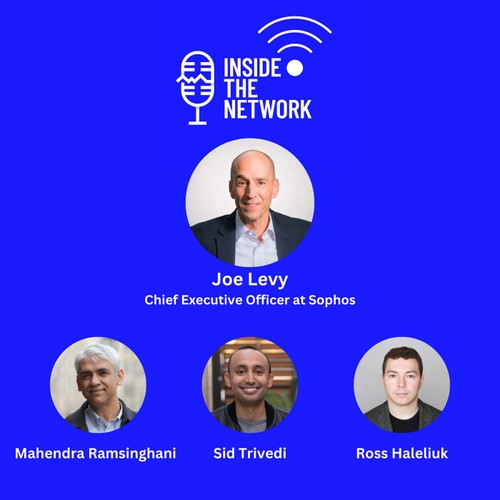
 Inside the Network
Inside the Network Joe Levy: Scaling Sophos to $1B+ revenue and defending the 350M overlooked businesses
26 snips
Jun 28, 2025 Joe Levy, CEO of Sophos and a seasoned leader in cybersecurity, shares his journey from CTO roles to steering Sophos towards $1B in revenue. He discusses the stark reality that over 350 million businesses lack a CISO and the importance of bridging this cybersecurity gap. Joe reveals insights from Sophos’ $800M acquisition of Dell Secureworks and highlights the culture of 'vulnerability-based trust' in leadership. He also opens up about navigating personal health challenges while leading, emphasizing resilience and support.
AI Snips
Chapters
Books
Transcript
Episode notes
Early Tech Curiosity
- Joe Levy's curiosity began as a child taking things apart to understand how they work.
- In his teens, he learned programming by writing his own video games after writing to Atari for manuals.
CEO Role's Emotional Challenge
- Transitioning from CTO to CEO required Joe to spend much energy on emotional regulation.
- Managing people's careers and decisions is harder than technical or financial decisions.
Master Delegation as CEO
- Delegation is key when stepping up to CEO; trust your leadership team fully.
- Maintain personal technical interests but relinquish ownership of tech leadership.







